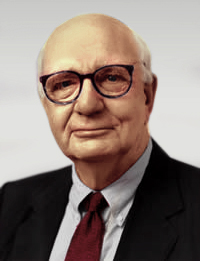|
Flow Trading
In finance, flow trading occurs when a firm trades stocks, bonds, currencies, commodities, their derivatives, or other financial instruments, with funds from a client, rather than its own funds. Flow trading can be a significant source of profits for investment banks. Engaging in flow trading can also boost a firm's own proprietary trading profits via access to information on client activities. Additionally, the firm can often facilitate client trades by serving as the counterparty, thus profiting from the bid–offer spread. In 2011, the Volcker Rule The Volcker Rule iof the Dodd–Frank Wall Street Reform and Consumer Protection Act (). The rule was originally proposed by American economist and former United States Federal Reserve Chairman Paul Volcker to restrict United States banks from ma ... aimed to limit flow trading businesses from taking proprietary bets. References Corporate finance {{Finance-stub ... [...More Info...] [...Related Items...] OR: [Wikipedia] [Google] [Baidu] |
Finance
Finance is the study and discipline of money, currency and capital assets. It is related to, but not synonymous with economics, the study of production, distribution, and consumption of money, assets, goods and services (the discipline of financial economics bridges the two). Finance activities take place in financial systems at various scopes, thus the field can be roughly divided into personal, corporate, and public finance. In a financial system, assets are bought, sold, or traded as financial instruments, such as currencies, loans, bonds, shares, stocks, options, futures, etc. Assets can also be banked, invested, and insured to maximize value and minimize loss. In practice, risks are always present in any financial action and entities. A broad range of subfields within finance exist due to its wide scope. Asset, money, risk and investment management aim to maximize value and minimize volatility. Financial analysis is viability, stability, and profitability asse ... [...More Info...] [...Related Items...] OR: [Wikipedia] [Google] [Baidu] |
Investment Banks
Investment banking pertains to certain activities of a financial services company or a corporate division that consist in advisory-based financial transactions on behalf of individuals, corporations, and governments. Traditionally associated with corporate finance, such a bank might assist in raising financial capital by underwriting or acting as the client's agent in the issuance of debt or equity securities. An investment bank may also assist companies involved in mergers and acquisitions (M&A) and provide ancillary services such as market making, trading of derivatives and equity securities, FICC services (fixed income instruments, currencies, and commodities) or research (macroeconomic, credit or equity research). Most investment banks maintain prime brokerage and asset management departments in conjunction with their investment research businesses. As an industry, it is broken up into the Bulge Bracket (upper tier), Middle Market (mid-level businesses), and boutique market ... [...More Info...] [...Related Items...] OR: [Wikipedia] [Google] [Baidu] |
Proprietary Trading
Proprietary trading (also known as prop trading) occurs when a trader trades stocks, bonds, currencies, commodities, their derivatives, or other financial instruments with the firm's own money (instead of using depositors' money) in order to make a profit for itself. Proprietary trading can create potential conflicts of interest such as insider trading and front running. Proprietary traders may use a variety of strategies such as index arbitrage, statistical arbitrage, merger arbitrage, fundamental analysis, volatility arbitrage, or global macro trading, much like a hedge fund. Many reporters and analysts believe that large banks purposely leave ambiguous the proportion of proprietary versus non-proprietary trading, because it is felt that proprietary trading is riskier and results in more volatile profits. Arbitrage One of the main strategies of trading, traditionally associated with banks, is arbitrage. In the most basic sense, arbitrage is defined as taking advantage of a pri ... [...More Info...] [...Related Items...] OR: [Wikipedia] [Google] [Baidu] |
Volcker Rule
The Volcker Rule iof the Dodd–Frank Wall Street Reform and Consumer Protection Act (). The rule was originally proposed by American economist and former United States Federal Reserve Chairman Paul Volcker to restrict United States banks from making certain kinds of speculative investments that do not benefit their customers. Volcker argued that such speculative activity played a key role in the financial crisis of 2007–2008. The rule is often referred to as a ban on proprietary trading by commercial banks, whereby deposits are used to trade on the bank's own accounts, although a number of exceptions to this ban were included in the Dodd–Frank law. The rule's provisions were scheduled to be implemented as part of the Dodd–Frank Act on July 21, 2010, with preceding ramifications, but were delayed. On December 10, 2013, the necessary agencies approved regulations implementing the rule, which were scheduled to go into effect April 1, 2014. On January 14, 2014, after a lawsui ... [...More Info...] [...Related Items...] OR: [Wikipedia] [Google] [Baidu] |

.jpg)
